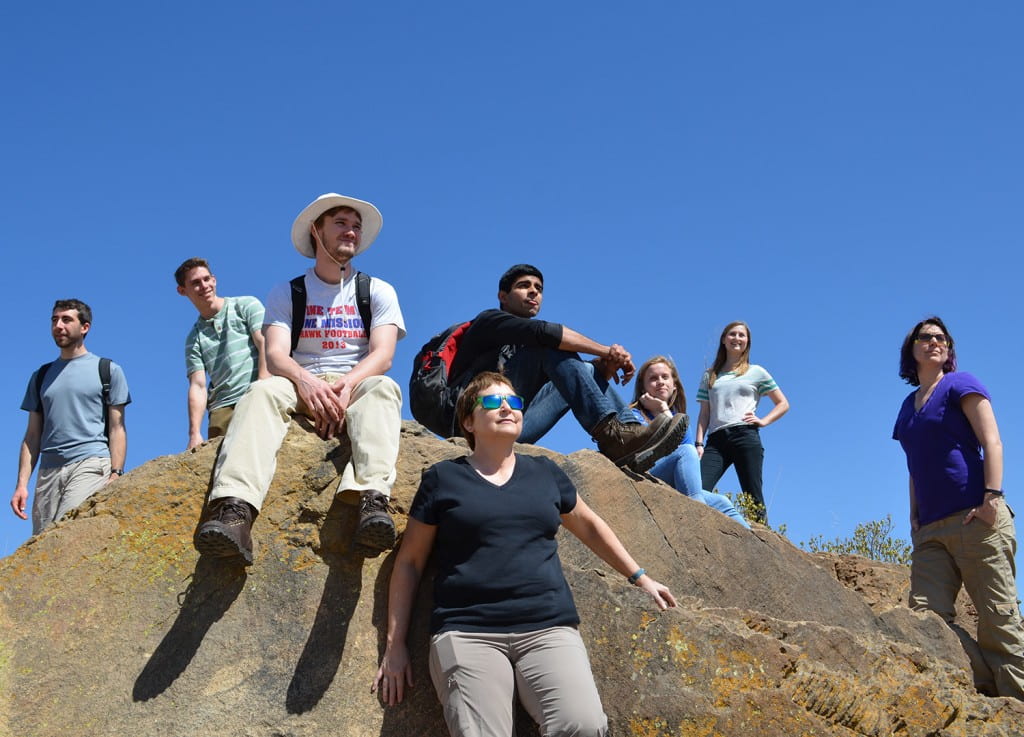For the Engineers Without Borders student group at Washington University in St. Louis (EWB-WU), service means more than simply helping those in need. It goes beyond that to create long-term partnerships that lead to sustainable change.
For five years, the students of EWB-WU have traveled to Ethiopia to work with their partners at the Mekelle School for the Blind. The school serves roughly 80 blind children in the region and is one of only a few like it in the country.
When the team first arrived in Mekelle in 2011, they found a vibrant community, passionate educators and bright students, who were struggling with the realities of living and operating in a developing city. Isolated on the outskirts of the city, the school had unreliable access to water and electricity, poor sanitation and inadequate resources to keep the school grounds secure.
“When we first traveled to Mekelle, most people didn’t even know that the school for the blind even existed,†said Robin Shepard, an adjunct instructor in the School of Engineering and Applied Science and the trip advisor.
With this in mind, the team started to tackle the issues, one at a time, by enlisting the help of local individuals and organizations. The students started by addressing the school’s need for a reliable water source. Although the school had a connection to city water, it would often stop flowing for days or even weeks at a time. To solve this, the team went to work on stabilizing an old water tower and placing two 1000-gallon reserve tanks on top. In two weeks, they completed the project with the help of local construction workers and a group of engineering students from a nearby university.
Using this model of collaboration, the team returned each year for two weeks to lay piping for the new water tower, improve the electrical grid at the school, and assess the issues of storm water and security. To ensure that each project would help the local economy, the team sourced all of their materials from local suppliers.
In January 2016, the team traveled to Mekelle to implement their final project. The previous trip allowed the students to assess a causeway that connects the student dormitories to the school buildings, a path that floods with six to 24 inches of contaminated water every year during the rainy season. With the help of local contractors, the students deepened the trench that channeled water towards the causeway and cleared the drains beneath the causeway to increase the flow of storm water.
Although the students were able to make improvements to this issue, the implementation did not happen without a struggle. The students arrived in Mekelle with a plan to install two additional pipes, which would have provided a long-term solution to the problem. However, each attempt to construct the pipes was met with roadblocks.
“We had six different alternatives to complete the project,†said Kimberly Weaver, engineering educator for the Institute for School Partnership and the second trip advisor. “However, there are some things that you just can’t plan for.â€
Weaver said that despite the challenges she believes that it taught the students the power of flexibility and an entrepreneurial mindset while on a job site. For senior David Sehloff, this project marked his last trip to Mekelle with EWB-WU before he graduates in May 2016. “I found the trips very encouraging as an engineering student because we got to see firsthand how some of the concepts we learn in classes can be applied with tangible effects on people’s lives,” Sehloff said. “I think this experience will be very helpful to me as I move on from WashU.”
At the end of the trip, the students visited Adigudem, another village about 35 kilometers from Mekelle, to meet the students at a new school. Working with an American couple in the Peace Corp teaching at the school, the students were able to assess the needs of this potential new partner.
“I feel a sense of necessary closure,†said junior Gregg Wilcox, one of the student leaders on the trip. “The new project has the potential to really change the lives of the community we work with, through water, sanitation or electrical means, whereas the project in Mekelle has been through all these stages.â€
The students from this trip will select two students to lead the next project with their new partners. Shepard said that she believes that students who participate in EWB-WU not only gain experience in working across cultures but are often well ahead of their peers when it comes to preparedness for the workforce.
“I cannot overstate how much wisdom the students come back with,†Shepard said. “I think it’s an amazing application of their knowledge.â€
February 2016  |  by, Gennafer Barajas
